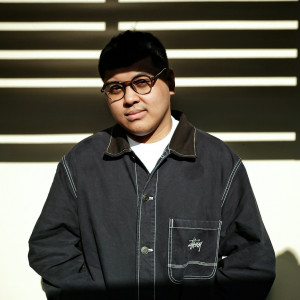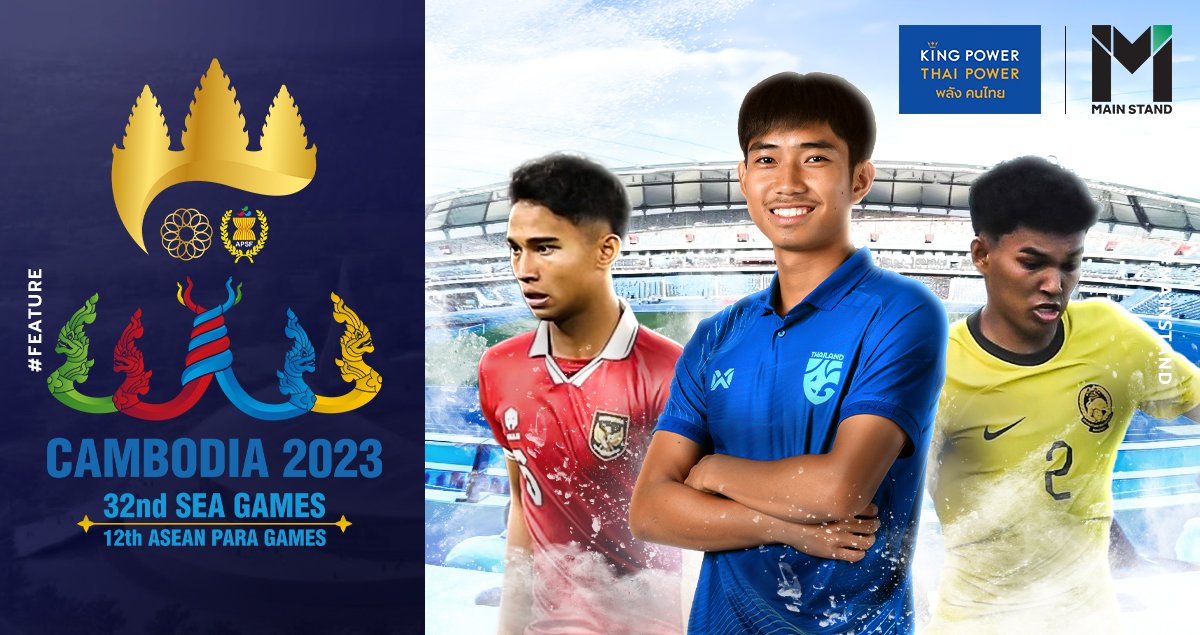
Mano Polking has just delivered back-to-back AFF Cup titles for Thailand and their seventh overall.
In doing so, he joins a small group of coaches who have won the competition twice, including Peter Withe, Radojko Avramovic and Kiatisuk Senamuang.
However, during his time at Bangkok United, his side was famous for playing ambitious and entertaining football, just to fall short in the end.
How did Mano Polking end his trophy drought and become a regular winner with the Thai national team? Follow along with Main Stand to find out.
A change of direction
The appointment of Mano Polking marked a major change in strategy for the Thai national team.
He was the third appointment under the reign of president Pol. Gen. Somyot Poompanmuang, who previously sought out coaches with World Cup experience to lead the War Elephants.
He controversially sacked legendary boss and two-time AFF Cup winner Kiatisuk Senamuang due to his failure to “compete with the best in Asia.”
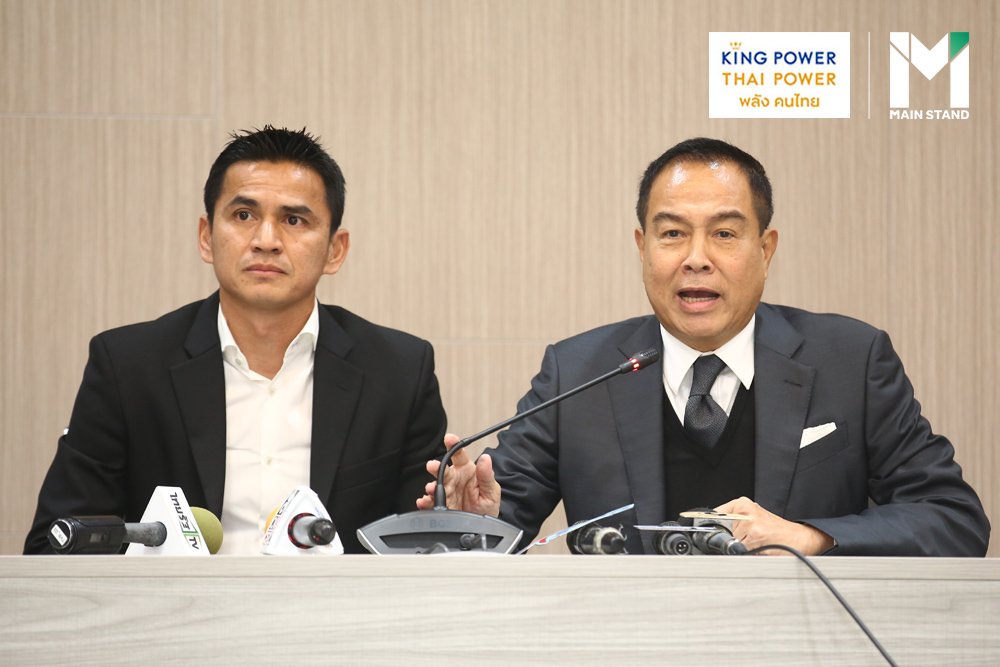
His replacement was Milovan Rajevac, a then 63-year-old who had led Ghana to the quarter-finals of the 2010 World Cup in South Africa. He was, in turn, replaced by 64-year-old Akira Nishino, who was fresh off leading the Japanese national team at the 2018 World Cup in Russia.
When both failed to improve on Thailand’s results in the latter stages of World Cup qualifying, fans were clamoring for a ‘local’ coach to helm the side again.
The appointment of Mano was met with plenty of skepticism from the Thai public. The 46-year-old had spent almost the entirety of his coaching career in Thailand, save for a short spell with Ho Chi Minh City, which was cut short by the Thai FA’s call.
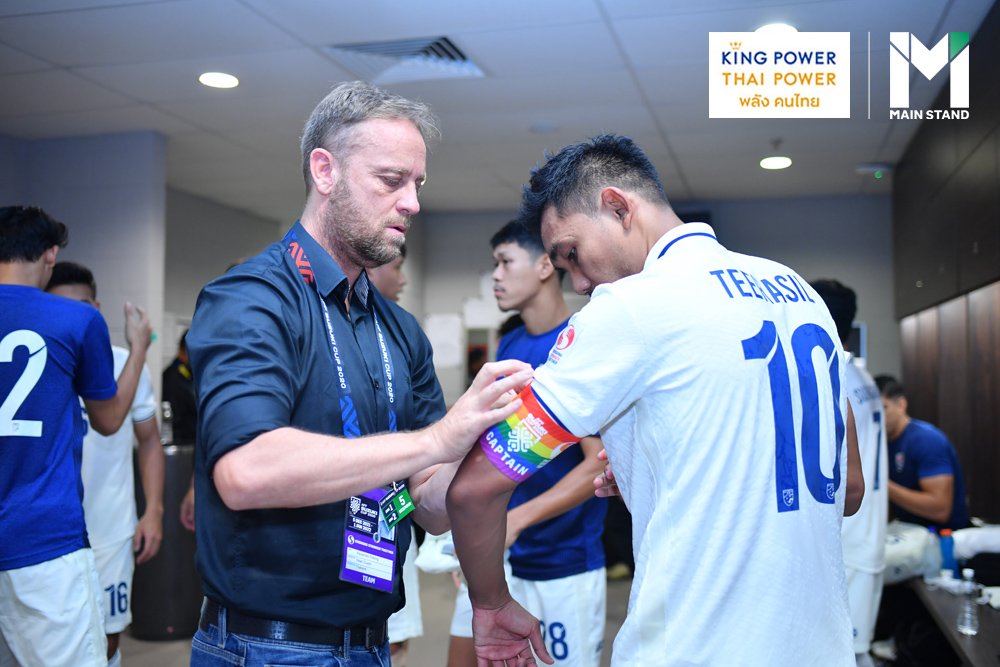
On paper, Mano ticked all the boxes needed by the FA at the time. Having spent almost a decade in Thailand by his appointment, he was well-positioned to make an instant impact despite the limited preparation time ahead of the 2020 AFF Cup. His previous involvement with the Thai national team setup, as an assistant to Winfried Schäfer and head coach of the U23 team, would also have helped his cause.
Furthermore, he played the same brand of possession-orientated attacking football that the fans and the players had come to demand in recent years.
However, the one complaint lobbied against him seemed to ring louder in Thai media than all of the above.
“He isn’t a winner.”
Mano’s Angels
Across his almost seven seasons with Bangkok United, Mano transformed them from an average, bottom-half side to one of the biggest teams in the country.
He got them playing exciting, energetic, and entertaining football which attracted plaudits from across the region, epitomized by his side’s record-breaking 97-goal season in 2017.
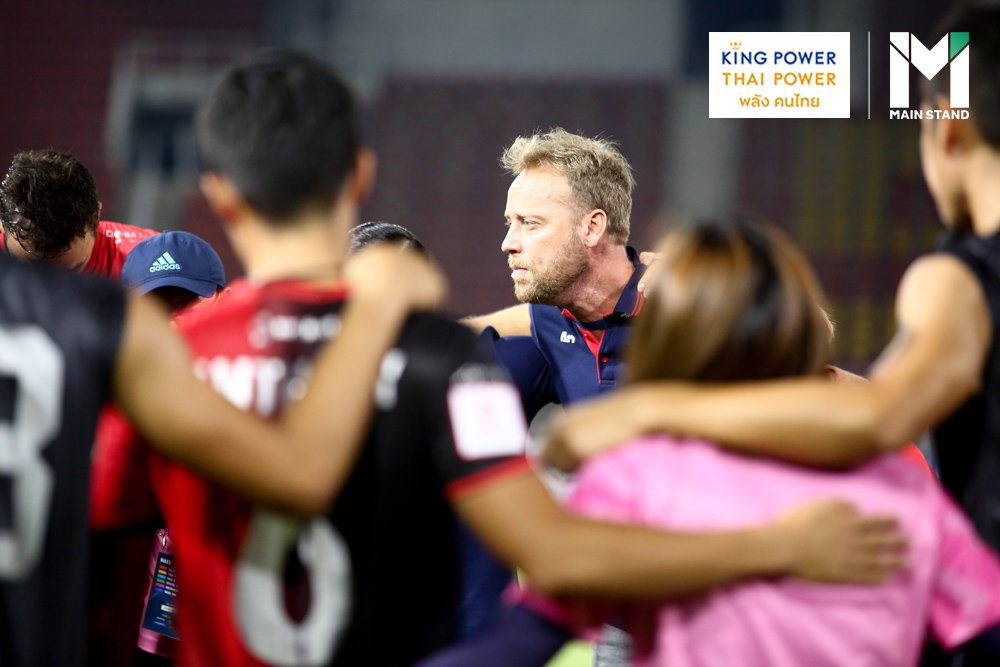
However, despite the team’s incredible rise, they could never get their hands on some silverware. With two second-placed finishes in the league, two semi-final elimination in the cup, and an agonizing defeat in a final, Mano’s side developed a reputation for being the league's ‘nearly men’ - always deserving to win but never quite crossing that hurdle.
To the casual viewer, watching his team would guarantee goals and entertainment. To the analytical eye, the sophistication of his football and the bravery of his decisions was commendable.
In a country with a huge appetite for attractive football, Mano’s Bangkok United became everyone’s second-favorite team, with even rival fans hoping that he would finally get his hands on the trophy.
However, when your pride is on the line, just “playing well” wouldn’t be enough.
Finding the right formula
Mano took over a Thailand side that was practically aching to reassert its dominance in Southeast Asia. A disappointing semi-final elimination in the 2018 AFF Cup was followed by a disastrous World Cup Qualifying campaign, which saw them finish below Vietnam and Malaysia.
Fans were disillusioned with the side, which they perceived to be in decline because they failed to beat their Southeast Asian neighbors. After successive managerial let-downs, the job was beginning to look like something of a poisoned chalice.
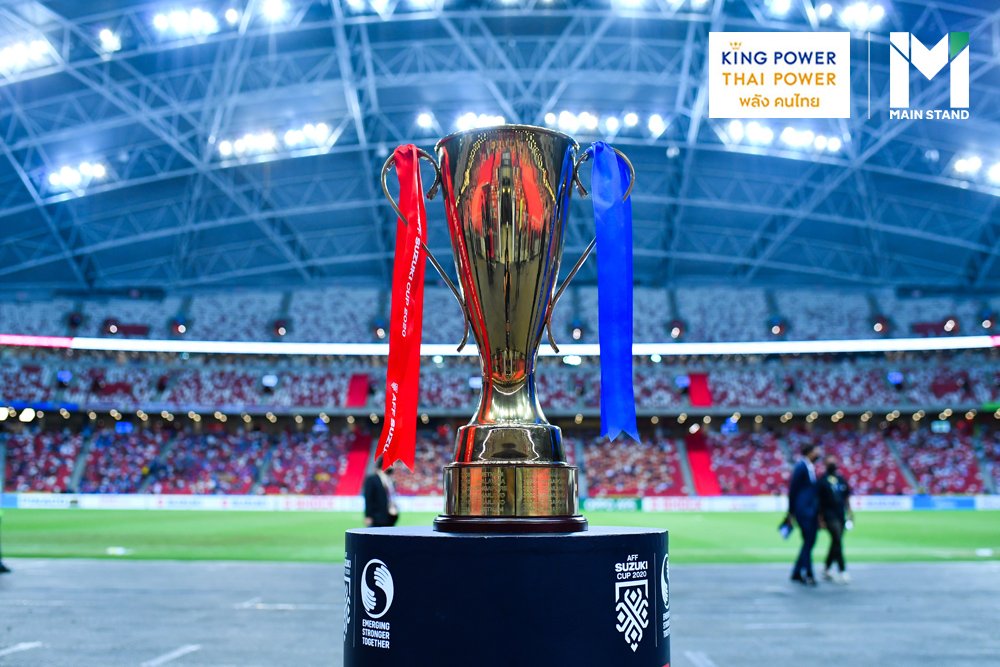
As such, the War Elephants couldn’t afford anything less than a win at the 2020 AFF Cup - a reality that Mano was acutely aware of.
With virtually no preparation time before flying off to Singapore, the new head coach needed to get things right from the off. Quickly, the decision to hire someone intimately familiar with the league was showing its merits.
“I was in Brazil, on holiday, when I got the call," Mano later revealed in an interview with Thai League Central shortly after the 2020 AFF Cup. "From then, the first night, I went to bed thinking how I could play."
Despite only having a few days to train before flying off to Singapore, Mano was immediately able to implement tactical innovations to get the best out of his players, using the depth of understanding he had built up from over a decade of knowing them.
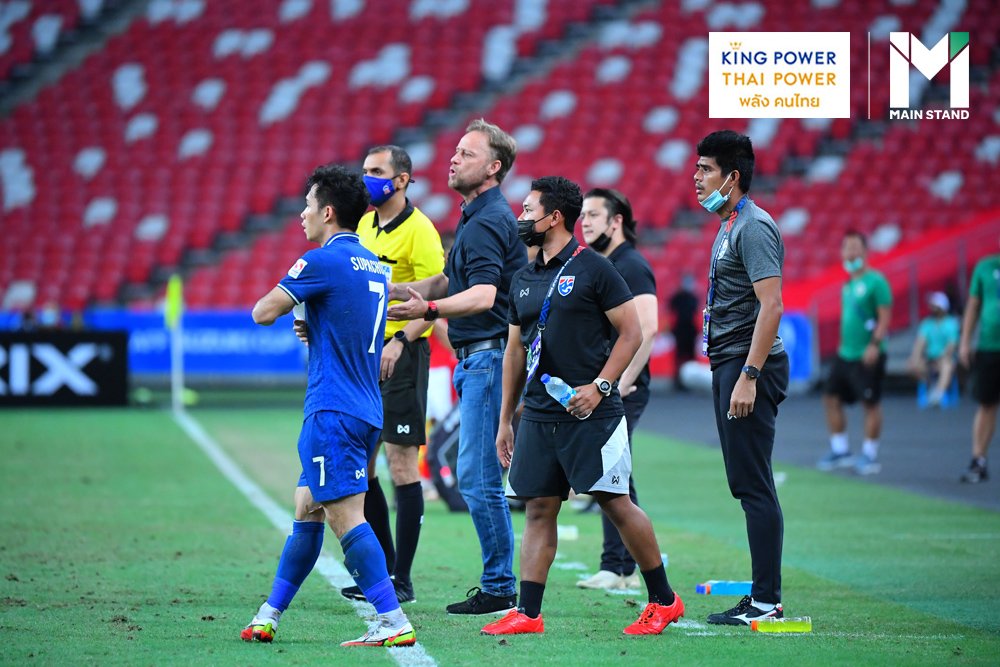
His adoption of a 4-4-2 diamond formation maximized Chanathip’s influence in his favored ‘number 10’ position, while Theerathon Bunmathan was given license to roam the pitch to assist with buildup virtually. Long-established national team partnerships and link-ups at the club level were utilized greatly, with abundant attention to detail.
This in-depth knowledge also made him unafraid to rotate. He changed all eleven of his starting players ahead of his final group-stage game against hosts Singapore and still managed to emerge with a 2-0 victory.
He took a similarly bold decision in the first leg of the final against Indonesia when he replaced an injured Elias Dolah by moving midfielder Weerathep Pomphan into the center of defense, with his side already leading 1-0.
This left Thailand without any ‘natural’ center-backs on the pitch for over half the match, with two excellent ball players at the back instead. The decision proved a masterstroke, as the side ran out a 4-0 demolition in the first match and 6-2 winners over two legs to reclaim their title as the Kings of ASEAN.
When confronted with the prospect of only having seven returning faces from his previous triumph ahead of the 2022 edition, his familiarity with the players and clear philosophy was ultimately crucial in making things tick.
Instead of ripping up everything that had come before to chart a ‘bold, new direction’ for the Thai national team, Mano returned to what the players were accustomed to, though with subtle tweaks and changes to make the side even more difficult to beat.
Bravery and belief
Despite how Thailand won their 2020 AFF Cup, only a few expected them to repeat the feat with a heavily rotated squad.
Mano Polking, however, stuck to his guns and trusted the depth of talent available to him. Despite the changes, the formula for winning his second campaign closely mirrored the first.
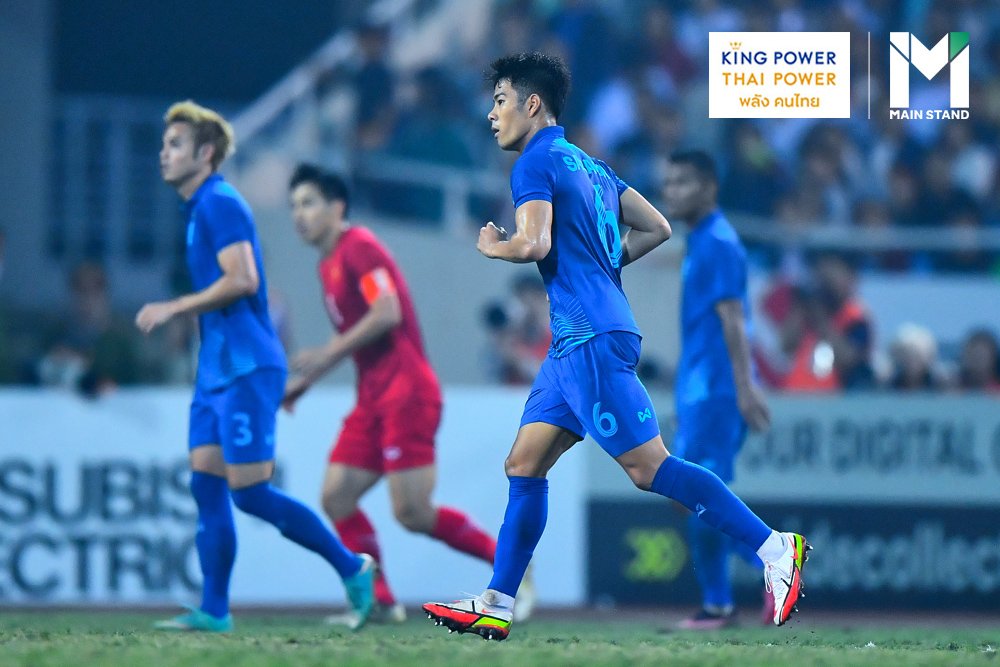
Thailand aimed to control possession in every one of their matches and selected an attack-minded lineup to match. Theerathon Bunmathan was permanently shifted to a central midfield role, as he had been for Buriram United since the latter half of last season, and partnered with fellow veteran Sarach Yooyen. Together, they formed the same creative hub that carried Thailand to victory in the last tournament.
However, last time out, they were surrounded by the likes of Thitipan Puangchan, Phitiwat Sukjitthamakul and Thanawat Suengchitthawon; midfield powerhouses who ensured the side always dominated in the center of the park. Without those players present, Mano needed a different solution, which came in the form of an exciting and energetic front four.
The side’s group-stage games featured two strikers and two attack-minded wingers, usually Bordin Phala, Ekanit Panya, Teerasil Dangda and Adisak Kraisorn. Joined by the adventurous Suphanan Bureerat and Sasalak Haiprakhon on either flank, the side was constantly on the front foot. It depended on the center-backs and central midfielders to completely control first phase of play. The gamble paid off, and Thailand dominated the ball in each group game and both the semi-final legs.
For the showpiece event against Vietnam, Mano once again shuffled the pack, sacrificing both wingers and bringing in extra midfielders Peeradol Chamrasamee and Weerathep Pomphan. The latter slotted in as an additional central defender, just as he did in the 2020 final against Indonesia. The War Elephants were able to nullify Vietnam’s greatest strengths and give themselves the platform to edge out a tightly contested encounter.
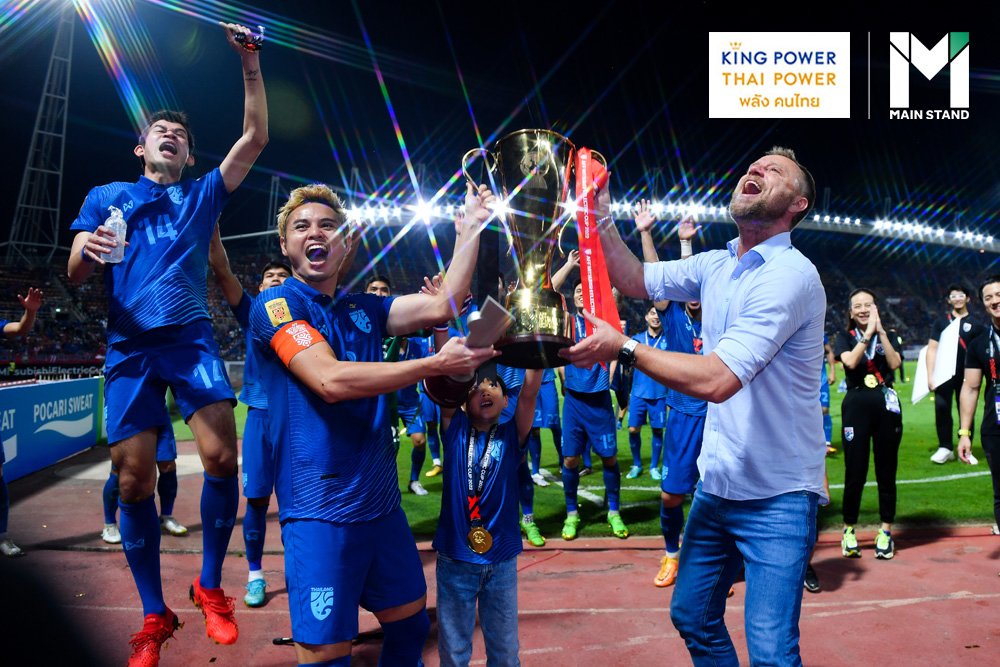
Mano’s penchant for brave decisions and his commitment to his philosophy was exactly what made him beloved at Bangkok United. Now, they were finally paying dividends in terms of silverware at a time when Thailand needed it.
“I know I have that ‘stamp,’ that I may be a good coach, but I’m not a winner,” Mano admitted in the same aforementioned interview with Thai League Central. “This title just helps for the people who think like that, but I will not change the way I work because of it.”
These back-to-back AFF Cup triumphs not only ended Mano Polking’s long wait for silverware but proved that the style and approach he had committed his entire managerial career to could deliver in the crucial moments.
The Changsuek boss has now earned himself a mandate to push forward and see how far his philosophy can take them.
Source:
https://www.youtube.com/watch?v=_AmkdqS32_M&t=39s



